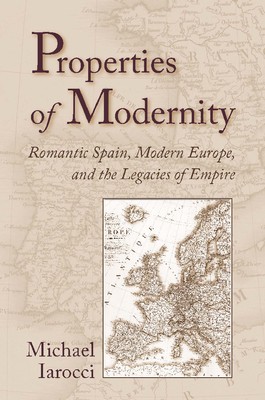
- We will send in 10–14 business days.
- Author: Michael Iarocci
- Publisher: Vanderbilt University Press
- ISBN-10: 0826515223
- ISBN-13: 9780826515223
- Format: 16.2 x 23.2 x 2.1 cm, softcover
- Language: English
- SAVE -10% with code: EXTRA
Reviews
Description
Michael Iarocci traces the ways in which Spain went from being central to European history and identity during the early modern period to being marginalized and displaced by England, France, and Germany during the Romantic period. He points out that it has long been an unspoken assumption tainting much of literary criticism that Spain did not have a strong Romantic movement even though Spain itself had come to be viewed by the "new" Europe as the location of all that was romantic.
Through a close study of Cadalso, Saavedra, and Larra, Iarocci argues that Spanish writers were intensely concerned with the same issues taken up by more famous Romantics and that the ways in which they address these issues provides us with a richer notion, not only of Spain, but of all of Europe.EXTRA 10 % discount with code: EXTRA
The promotion ends in 19d.05:48:04
The discount code is valid when purchasing from 10 €. Discounts do not stack.
- Author: Michael Iarocci
- Publisher: Vanderbilt University Press
- ISBN-10: 0826515223
- ISBN-13: 9780826515223
- Format: 16.2 x 23.2 x 2.1 cm, softcover
- Language: English English
Michael Iarocci traces the ways in which Spain went from being central to European history and identity during the early modern period to being marginalized and displaced by England, France, and Germany during the Romantic period. He points out that it has long been an unspoken assumption tainting much of literary criticism that Spain did not have a strong Romantic movement even though Spain itself had come to be viewed by the "new" Europe as the location of all that was romantic.
Through a close study of Cadalso, Saavedra, and Larra, Iarocci argues that Spanish writers were intensely concerned with the same issues taken up by more famous Romantics and that the ways in which they address these issues provides us with a richer notion, not only of Spain, but of all of Europe.

Reviews